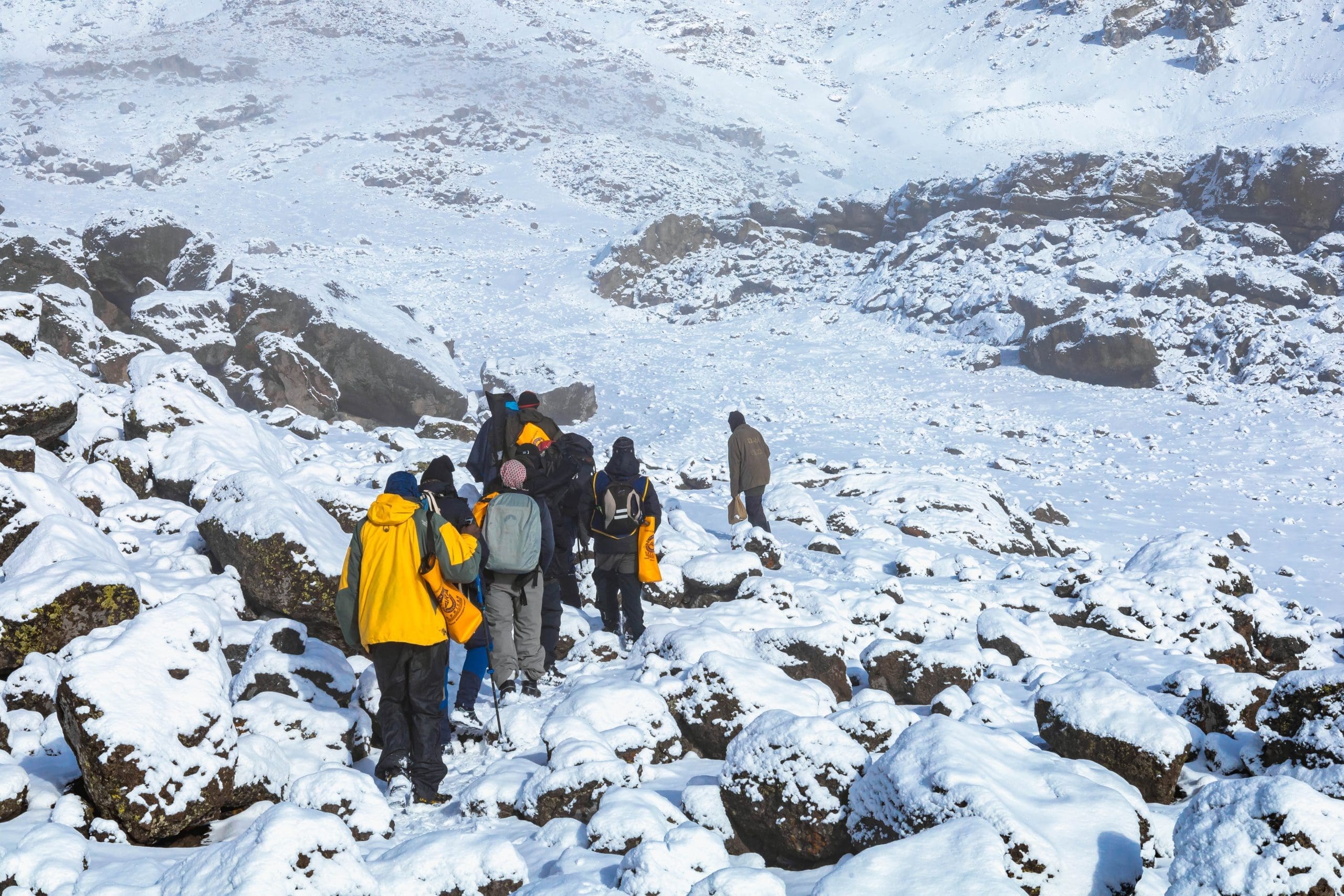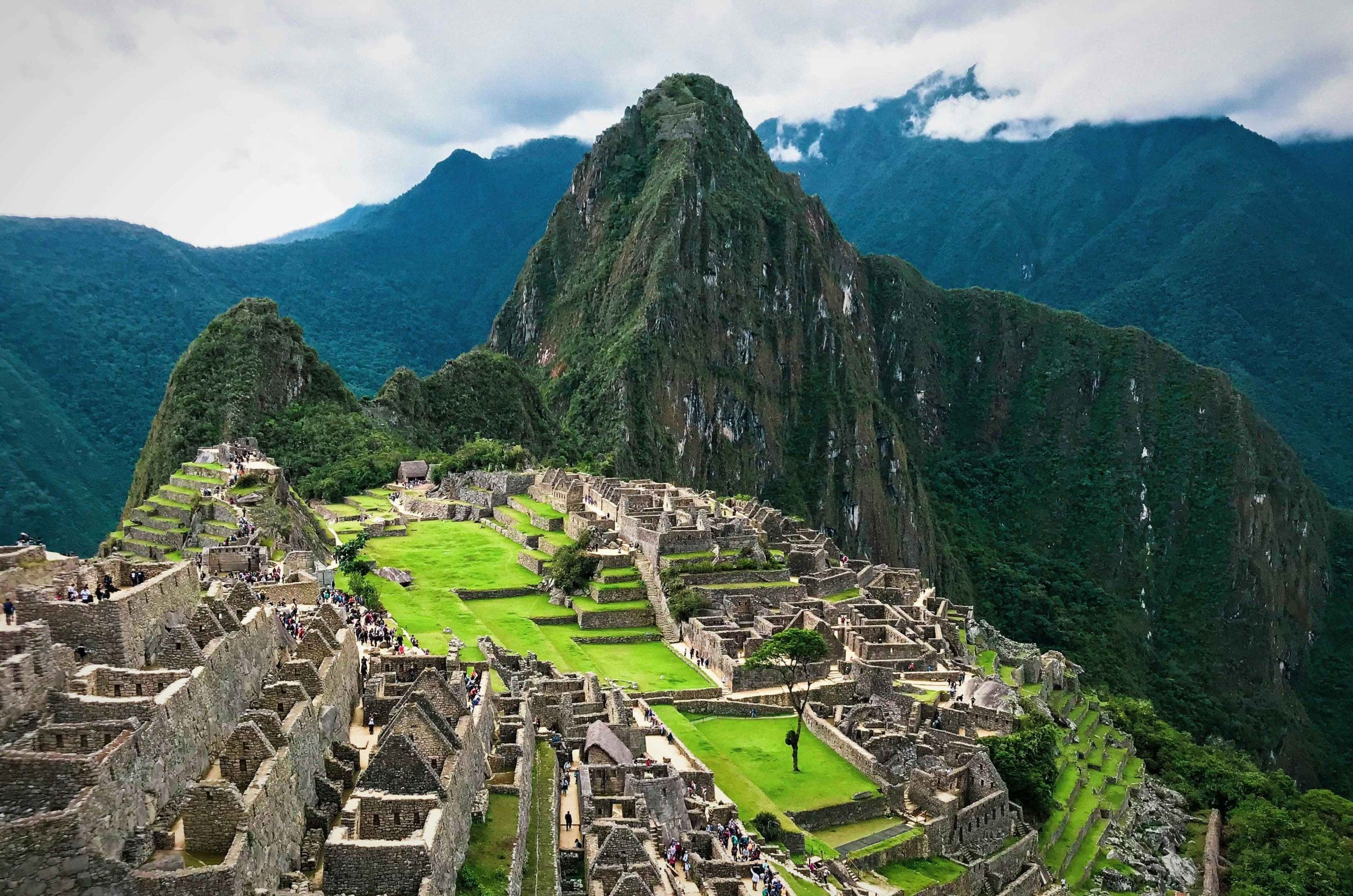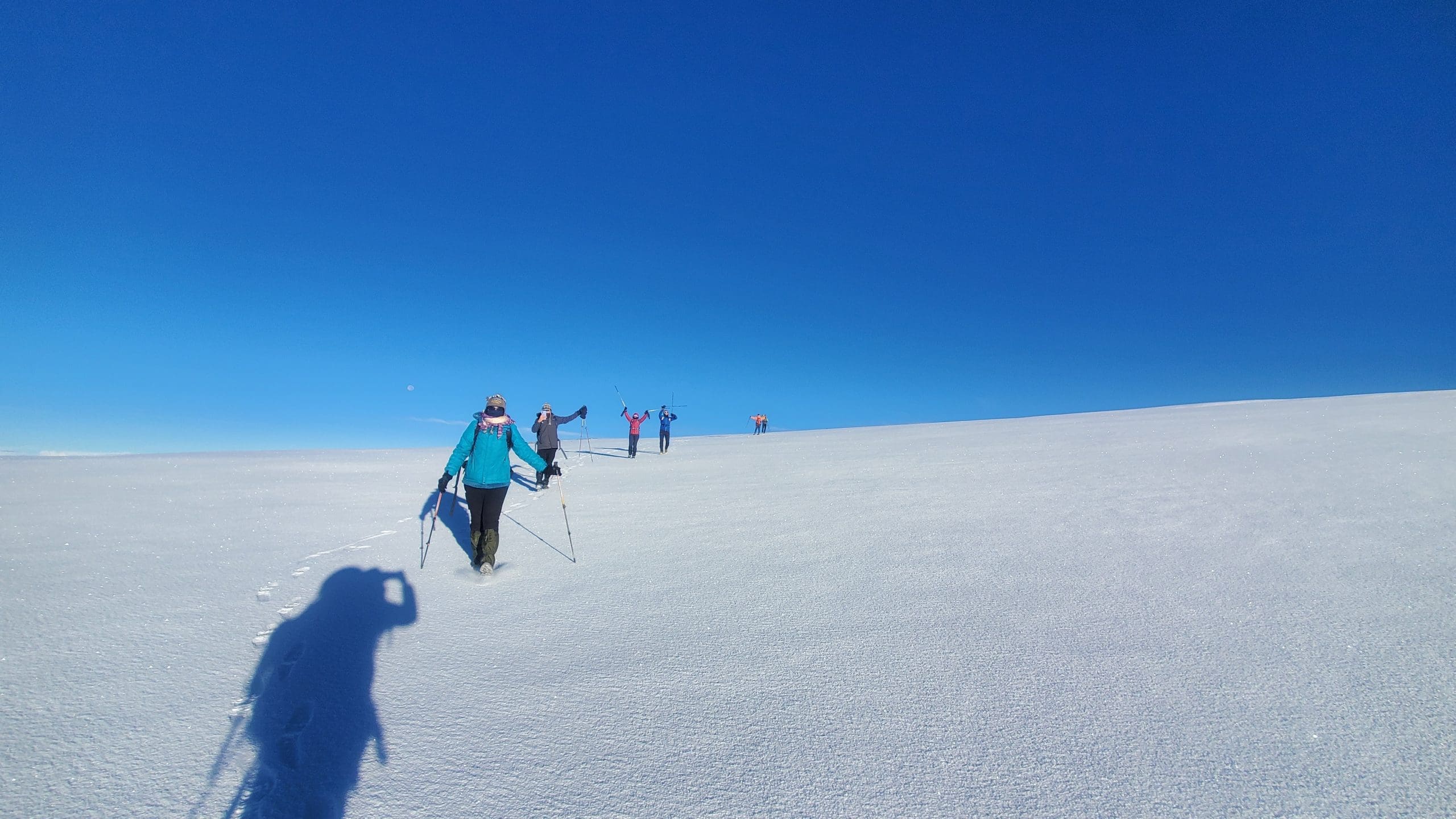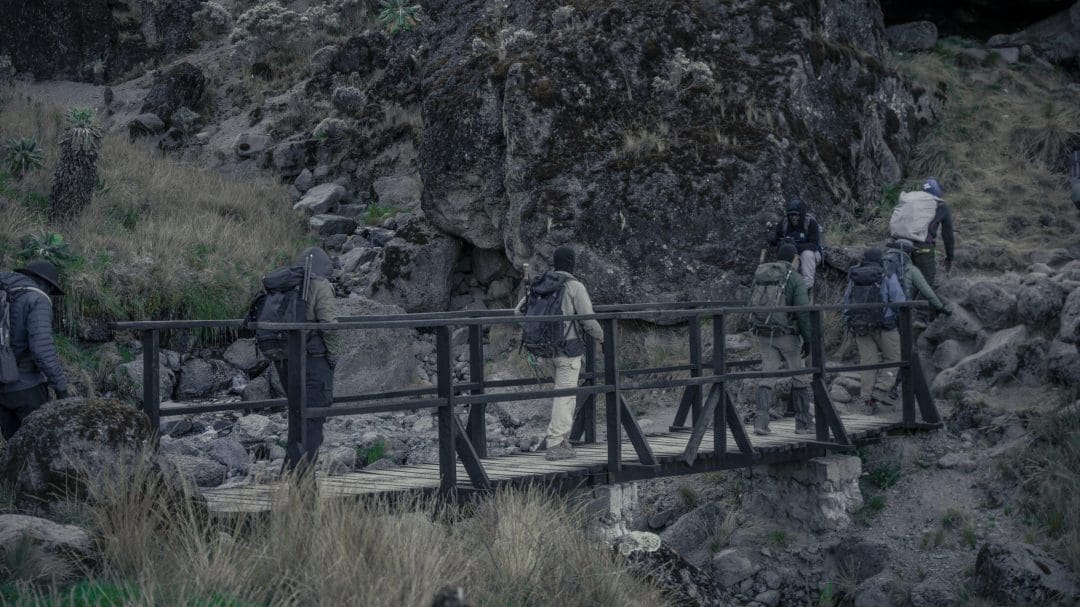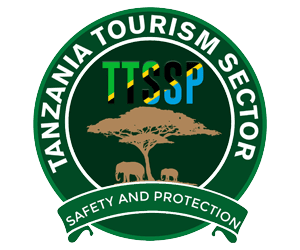What Is Leave No Trace?
Leave No Trace is a worldwide movement that encourages people to enjoy the outdoors responsibly while minimizing their environmental impact. It was created to address the growing pressures on natural areas as tourism and outdoor recreation increased around the globe. Today, its principles are recognized as the gold standard for sustainable travel and are practised by hikers, climbers, campers, and tour operators in every corner of the world.
The philosophy is built around seven guiding principles that provide practical steps for protecting nature:
- Plan and prepare – Thoughtful preparation reduces accidents, prevents damage to fragile environments, and ensures safety for both travelers and wildlife.
- Travel and camp on durable surfaces – Staying on established paths and campsites avoids erosion and protects delicate vegetation.
- Dispose of waste properly – This includes carrying out all trash, food scraps, and even biodegradable items that may harm ecosystems.
- Leave what you find – Preserving cultural sites, rocks, plants, and artifacts ensures that future visitors experience the same beauty.
- Minimize campfire impacts – Using stoves instead of open fires helps prevent forest damage and reduces the risk of wildfires.
- Respect wildlife – Observing animals from a distance prevents stress and keeps both humans and wildlife safe.
- Be considerate of other visitors – Sharing trails and camps respectfully ensures that everyone has a positive experience in nature.
These principles are not only about protecting the environment but also about building respect for nature, for local communities, and for fellow travelers. At Zara Tanzania Adventures, these values are deeply woven into the way we operate. From Kilimanjaro climbs to Tanzania safaris, we teach and practice Leave No Trace ethics to make sure that our adventures bring joy today while safeguarding Tanzania’s treasures for tomorrow.
In 2025, Zara Tanzania Adventures officially joined the Leave No Trace organization, strengthening our commitment to responsible tourism and aligning our work with this global conservation movement.
Why Leave No Trace Matters on Kilimanjaro
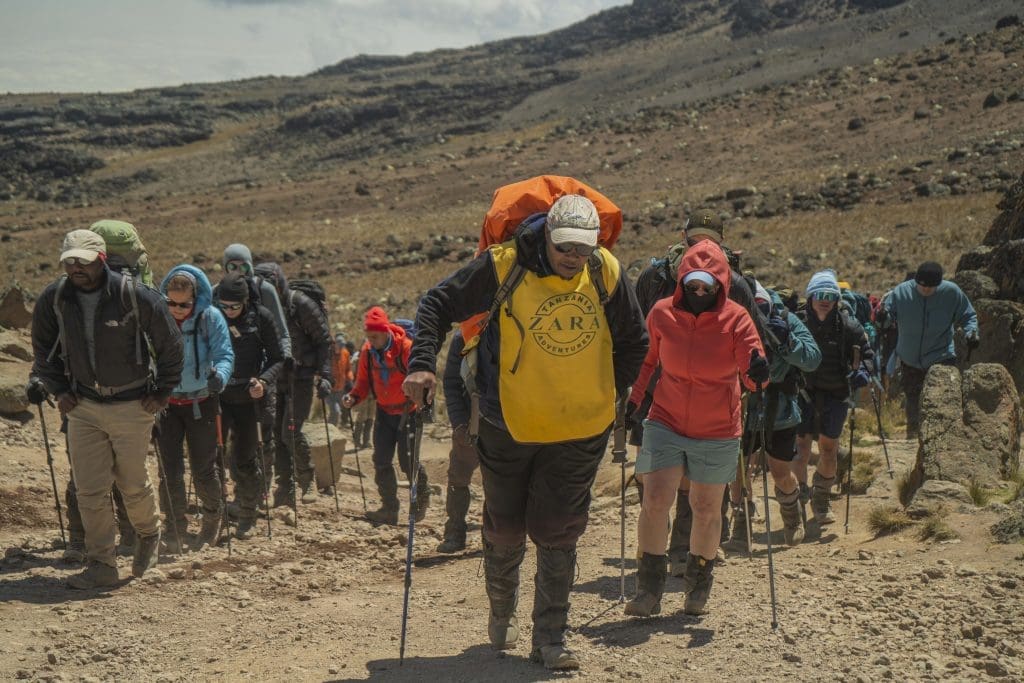
Today, Mount Kilimanjaro welcomes more than 60,000 climbers annually, ranking it among the most visited mountain destinations worldwide. In contrast, during the early 1990s, only a few thousand adventurers attempted the climb each year. This remarkable growth has significantly supported Tanzania’s tourism industry, generating economic benefits for local communities. However, it has also intensified the pressure on Kilimanjaro’s fragile ecosystem.
To preserve its natural beauty for future generations, it is vital to embrace sustainable and responsible tourism practices. At Zara Tanzania Adventures, we are committed to the Leave No Trace philosophy, ensuring that every climb and safari experience is not only memorable but also sustainable.
Our Commitment to a Cleaner Kilimanjaro
Keeping the Trails Clean

Every Zara Tanzania Adventures expedition is carefully planned with sustainability in mind. Our teams carry dedicated trash bags throughout the climb. This ensures that all waste, whether from guests or crew, is collected immediately and transported down the mountain for proper disposal. A designated porter is assigned to monitor and manage this process, making sure nothing is left behind.
Beyond their assigned duties, our guides and porters also go out of their way to pick up litter they find along the trails, whether it is a forgotten snack wrapper, an empty water bottle, or other non-biodegradable waste left by less careful climbers. By carrying waste with us at all times and leaving no trace behind, we keep Kilimanjaro’s trails cleaner than we found them, setting an example of responsible trekking that inspires our guests to follow the same practices.
Cleanup Climbs
In addition to maintaining cleanliness on regular treks, Zara Tanzania Adventures also organizes special Kilimanjaro cleanup expeditions. These are dedicated climbs where the primary goal is to collect as much waste as possible from the slopes and campsites. Supported by our guides, porters, and even enthusiastic guests, these initiatives often remove hundreds of kilograms of waste that would otherwise pollute the mountain’s delicate ecosystem.
These climbs are not just about cleaning; they are also powerful awareness campaigns, showing both local communities and international climbers the importance of collective responsibility in protecting the mountain. Over time, our efforts have helped contribute to noticeable improvements in trail conditions, with Kilimanjaro looking cleaner today than it did years ago.
Training Our Mountain Teams

Sustainability is a continuous process, and at Zara, education plays a key role. That’s why we invest heavily in the training of our mountain guides and porters. Beyond technical climbing skills and safety knowledge, our teams are taught how to apply Leave No Trace principles in real situations, whether it’s managing waste, setting up eco-friendly camps, or educating guests on minimizing their impact. By empowering our crew with this knowledge, they become ambassadors of conservation, ensuring that every expedition up Kilimanjaro contributes positively to the mountain environment. Their work is vital in preserving the natural beauty of Kilimanjaro for future generations of climbers.

Extending Cleanups to the Ocean
Our environmental commitment extends beyond the mountain. We recognize that Tanzania’s rich natural heritage also includes its pristine coastline and vibrant marine ecosystems. To protect these environments, Zara Tanzania Adventures regularly organizes ocean cleanup activities along the beaches and waters of Pangani Coast and other coastal areas.
Working together with local communities, divers, and volunteers, we collect harmful waste, including plastics, fishing nets, and other pollutants that threaten marine life. These efforts help protect coral reefs, fish populations, and endangered species such as sea turtles, which are critical to the health of the Indian Ocean ecosystem. By expanding our conservation initiatives from the heights of Kilimanjaro to the shores of Tanga Region, we showcase our holistic approach, one that values and safeguards all of Tanzania’s natural wonders.
Supporting the Global Mission of Leave No Trace
Leave No Trace is not just about Kilimanjaro; it is a worldwide movement. At Zara Tanzania Adventures, we are proud to contribute to its global mission. By educating climbers, supporting conservation initiatives, and working with local and international partners, we help sustain the destinations we love for generations to come.
In addition, we make an annual donation to the Leave No Trace organization. This contribution helps extend the movement’s work beyond Tanzania, supporting cleanup projects, education programs, and conservation efforts in other parts of the world. By giving back, we ensure that the principles of responsible tourism reach more destinations globally, preserving natural landscapes and wildlife for future generations.
When you climb Kilimanjaro or embark on a safari with us, you are not only fulfilling a dream, you are also helping preserve Tanzania’s landscapes and wildlife, while supporting a global effort to keep our planet wild and beautiful.
Frequently Asked Questions
1. What does Leave No Trace mean on Kilimanjaro?
Leave No Trace is a set of outdoor ethics that helps protect the fragile environment of Kilimanjaro. It means carrying out all waste, respecting wildlife, staying on established trails, and ensuring nothing is left behind that could harm the mountain ecosystem
2. How does Zara Tanzania Adventures practice Leave No Trace?
On every expedition, our teams carry trash bags to collect all waste, train guides and porters in sustainable practices, and organize special Kilimanjaro cleanup climbs. We also extend our efforts to ocean cleanups in the Tanga Region and make annual donations to support Leave No Trace globally.
3. Can climbers join Zara’s cleanup climbs?
Yes. We encourage our guests to participate in our cleanup initiatives. Many climbers find it rewarding to contribute directly by helping collect litter along the routes, making their climb even more meaningful.
4. Why is Leave No Trace important for future generations?
Kilimanjaro and Tanzania’s ecosystems are under growing pressure from tourism. Practising Leave No Trace ensures these landscapes remain unspoiled, so future generations can experience the same beauty and wildlife as we do today.
5. Does Leave No Trace apply only to mountains?
No. Leave No Trace principles apply everywhere, from mountains and forests to beaches and oceans. That’s why Zara Tanzania Adventures also organizes ocean cleanups to protect Tanzania’s coastal ecosystems and marine life.



